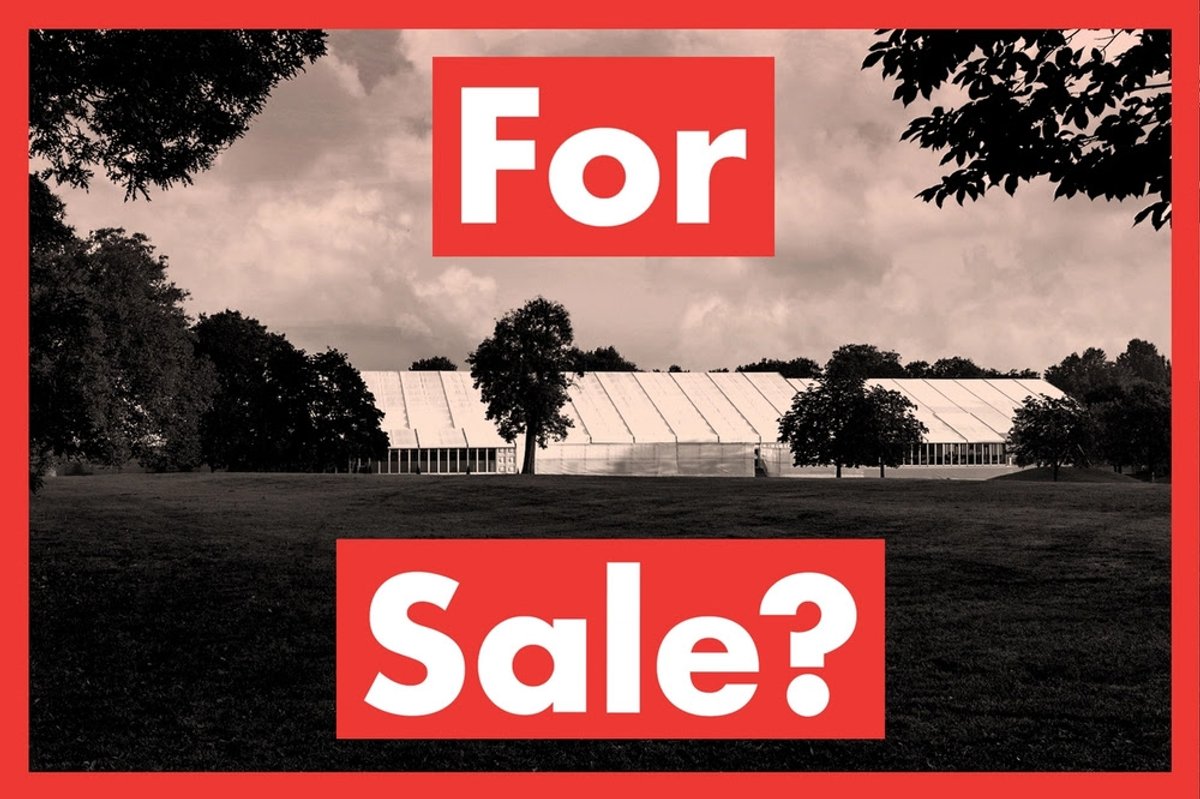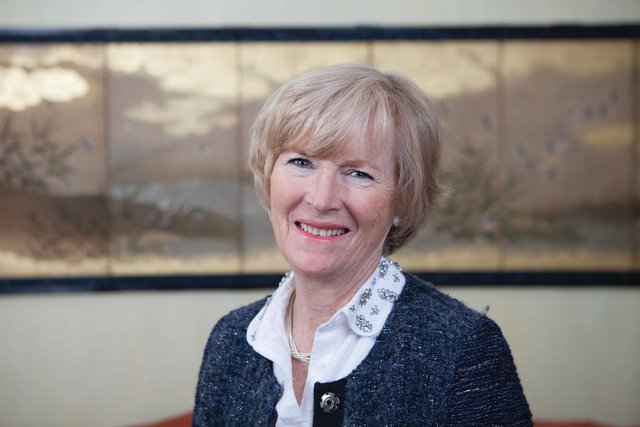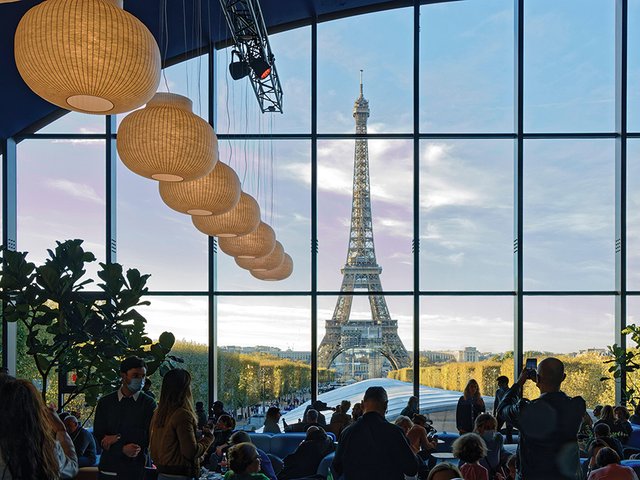“Poor Frieze!” exclaimed one of my colleagues as we pressed into the newly refurbished Grand Palais, the vast Beaux Arts palace built in 1900 and the most prestigious venue for art events in Paris. Excitement was high—this was the first edition of Art Basel Paris to be held in the Grand Palais, a far cry from the cramped temporary pavilion it previously occupied.
The sky was a deep blue, the sun was glittering off the soaring glass dome, it was t-shirt weather and dense crowds were surging into the building, which had undergone four years’ extensive—and expensive—renovation. A number of dealers told me there were far more Americans in the French capital for Art Basel Paris than they had seen in London for Frieze just one week before. And while not extraordinary, sales seem to have been satisfactory at both fairs, with Paris tipping the balance with more historical, and often more expensive, works.
And while the next day saw heavy rain and even leaks in that lavishly refurbished roof, there is no doubt that Paris was the place to be in October, with a range of great exhibitions, among them Arte Povera at the Bourse de Commerce, Surrealism at the Centre Pompidou and Gustave Caillebotte at the Musée d'Orsay, as well as 12—yes, 12!—art fairs.
And then came a second blow to Frieze, as just a few days later its owner, the talent agency Endeavor, announced that it was exploring a “potential sale” of some of its businesses in preparation for being taken private by its controlling shareholder, Silver Lake. The sale would include the Frieze group of seven art fairs: two in London, New York, Los Angeles, Seoul, The Armory and Expo Chicago. The Armory was bought by Frieze last year, for $24m, and at roughly the same time, Frieze acquired Expo Chicago.
Despite Endeavor’s claim that Frieze had launched “successful fairs” in Los Angeles and Seoul, it reported a net loss of $253.8m in the third quarter of 2024, with the segment that includes the fair group down 20.1%, compared with the second quarter of 2023. And this continues the lacklustre performance of the group over the past three years.
So how much is Frieze being sold for, and to whom? Marc Spiegler, the former global director of Art Basel, posted on Instagram that a “major dealer told me Frieze is priced at $80m”.
Another insider thinks that price is too high—the logic being that Frieze is not necessarily very profitable, which might be borne out by the figures reported above.
So who could or would buy it? The temptation might be to look at Art Basel, which has James Murdoch’s money to play with. However, putting together such a big fairportfolio, at a difficult time for the art market, might not tempt Basel’s Swiss owner MCH. Or could Simon Fox, the chief executive officer of Frieze, be contemplating a management buyout? I asked Frieze all of this, and to no great surprise their spokesperson offered a firm “no comment” to all my questions.
One thing is for sure – Frieze has got a hefty new competitor just across the Channel. But some healthy competition is never a bad thing!




